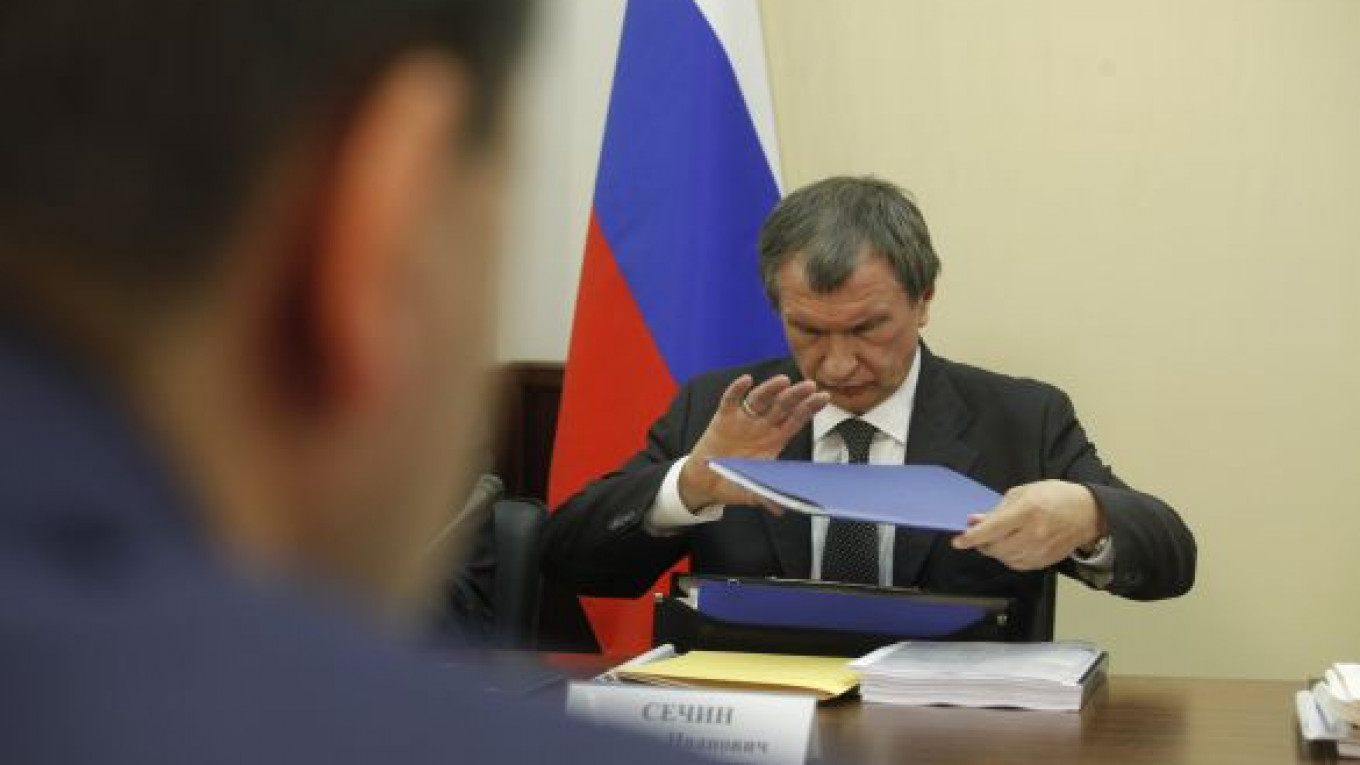The quarterly financial statements published by Rosneft, Gazprom and Gazprombank on the same day provide different information as to who chairs Russian state-owned holding Rosneftegaz's board of directors, Interfax reported.
Rosneft maintains that Igor Sechin, Rosneft's president, occupies the position. Gazprombank, however, says that the chairman of its management board, Andrei Akimov, was still the chairman of Rosneftegaz's board of directors on the date that the second quarter 2012 financial report was compiled. Gazprom, on the board of directors of which Akimov sits, also indicates that he is the chairman at Rosneftegaz.
Natalya Timakova, Prime Minister Dmitry Medvedev's spokeswoman, told Vedomosti and Kommersant that the directive on Sechin's appointment to chairman of Rosneftegaz's board of directors has not yet been signed.
Sechin chaired Rosneftegaz's board of directors from 2006 to 2011. In April 2011, then-President Dmitry Medvedev demanded that all government representatives be removed from the boards of directors of state-owned companies. Sechin, who was a deputy prime minister at the time, was forced to vacate his spot on the boards of directors of both Rosneft and its parent company, Rosneftegaz.
After the presidential elections in March 2012, Sechin was not included in the new government. In May, he was appointed president of Rosneft and nominated to Rosneftegaz's board of directors. According to Rosneftegaz's information, the company's board of directors was changed on June 30. Rosneftegaz's chief assets are 75.2 percent of Rosneft's shares and 10.7 percent of Gazprom's shares.
The significance of Rosneftegaz increased this year, when it received the right to use accumulated dividends to purchase government-owned assets undergoing privatization.
Related articles:
A Message from The Moscow Times:
Dear readers,
We are facing unprecedented challenges. Russia's Prosecutor General's Office has designated The Moscow Times as an "undesirable" organization, criminalizing our work and putting our staff at risk of prosecution. This follows our earlier unjust labeling as a "foreign agent."
These actions are direct attempts to silence independent journalism in Russia. The authorities claim our work "discredits the decisions of the Russian leadership." We see things differently: we strive to provide accurate, unbiased reporting on Russia.
We, the journalists of The Moscow Times, refuse to be silenced. But to continue our work, we need your help.
Your support, no matter how small, makes a world of difference. If you can, please support us monthly starting from just $2. It's quick to set up, and every contribution makes a significant impact.
By supporting The Moscow Times, you're defending open, independent journalism in the face of repression. Thank you for standing with us.
Remind me later.






